-
 +13 +1
+13 +1The Epigenetic Secrets Behind Dopamine, Drug Addiction and Depression
New research links serotonin and dopamine not just to addiction and depression, but to the ability to control genes.
-
 +12 +1
+12 +1We discovered a missing gene fragment that's shedding new light on how males develop
A new finding in mice rewrites the textbook explanation of the male sex-determining gene, Sry. It might also help us better understand how males and females come to be.
-
 +4 +1
+4 +140,000-year-old bone reveals East Asia's ancient history
By sequencing the genomes of people who lived many millennia ago using ancient DNA, scientists are starting to fill in the picture of how Asia was populated.
-
 +13 +1
+13 +1Genetics Steps In to Help Tell the Story of Human Origins
It’s not unusual for geochronologist Rainer Grün to bring human bones back with him when he returns home to Australia from excursions in Europe or Asia. Jawbones from extinct hominins in Indonesia, Neanderthal teeth from Israel, and ancient human finger bones unearthed in Saudi Arabia have all at one point spent time in his lab at Australian National University before being returned home.
-
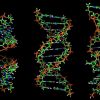 +14 +1
+14 +1DNA from an ancient, unidentified ancestor was passed down to humans living today
A new analysis of ancient genomes suggests that different branches of the human family tree interbred multiple times, and that some humans carry DNA from an archaic, unknown ancestor. Melissa Hubisz and Amy Williams of Cornell University and Adam Siepel of Cold Spring Harbor Laboratory report these findings in a study published 6th August in PLOS Genetics.
-
 +14 +1
+14 +1A Private Equity Firm Bought Ancestry, and Its Trove of DNA, for $4.7B
Blackstone, which says it will not have access to people's data, acquired the genealogy and home DNA testing company from a group of other investment firms. The genealogy company Ancestry has been acquired by investment firm Blackstone for $4.7 billion, changing ownership of the company and its trove of user-submitted DNA from a set of investment firms to another private equity firm.
-
 +3 +1
+3 +1Small Protein, Big Breakthrough for CRISPR Gene Editing
A new protein opens doors for gene editing by gaining access to hard-to-reach areas of the genome.
-
 +3 +1
+3 +1African American Genomes Yield Insight into Slavery Practices
A massive study finds that regional differences in how slaves were treated throughout the Americas are reflected in the DNA of present-day Americans of African descent.
-
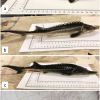 +11 +1
+11 +1Scientists accidentally create the "sturddlefish" — a new fish hybrid from two endangered species
Meet the sturddlefish: a new species of fish accidentally created by scientists in Hungary. It's an unusual mix of two endangered species, the American Paddlefish and the Russian Sturgeon. According to a study published in the journal Genes, researchers at Hungary's National Agricultural Research and Innovation Centre, Research Institute for Fisheries and Aquaculture said that they were not trying to create a new fish when the sturddlefish was born. Rather, they just wanted to know if the two species could be bred in captivity — and were shocked when the resulting fish actually grew to adulthood.
-
 +42 +1
+42 +1Experimental Blood Test Detects Cancer up to Four Years before Symptoms Appear
The assay looks for stomach, esophageal, colorectal, lung and liver malignancies
-
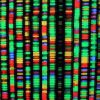 +11 +1
+11 +1Gedmatch investigating after users DNA profile made available to police
Gedmatch, the DNA analysis site that police used to catch the so-called Golden State Killer, was pulled briefly offline on Sunday while its parent company investigated how its users’ DNA profile data apparently became available to law enforcement searches.
-
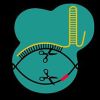 +19 +1
+19 +1New CRISPR enzyme mutation proves almost 100 times more precise
The CRISPR-Cas9 gene editing system is an extremely powerful tool, but there are still a few kinks to iron out. One of the main problems is off-target edits, which can have serious consequences. Now, researchers have found a particular mutation of the CRISPR enzyme that’s almost 100 times more precise than the most commonly used one.
-
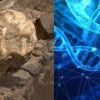 +20 +1
+20 +1The University of Copenhagen reveals 800,000-year-old genetic information from a human fossil
According to the latest material published by researchers at the University of Copenhagen, it was finally possible to take genetic information from a human grave that has an age of about 800,000 years. This important step towards the future of past genetic discoveries was made in collaboration with the National Center for Research on Human Evolution (CENIEH) from Burgos and many other institutions.
-
 +13 +1
+13 +1The World's Population By Eye Color Percentages
Human eye color is determined by two factors - the pigmentation of the iris and the way the iris scatters the light passing through it. Genes dictate how much melanin will be present in the eye. The more the melanin, the darker the eye. However, it might seem that in some individuals, their eye color tends to change depending on the amount of light present. This is because of the double layer of iris present in the eye.
-
 +2 +1
+2 +1Capabilities of CRISPR gene editing expanded
Many basic and clinical researchers are testing the potential of a simple and efficient gene editing approach to study and correct disease-causing mutations for conditions ranging from blindness to cancer, but the technology is constrained by a requirement that a certain short DNA sequence be present at the gene editing site.
-
 +20 +1
+20 +1$100 Genome Sequencing Will Yield a Treasure Trove of Genetic Data—and Maybe a Dystopian Nightmare
What would the implications be if decoding your genes cost less than a pair of designer jeans? We might soon find out after a Chinese company claimed it can sequence the human genome for $100. The speed at which the price of genetic sequencing has fallen has been astonishing, from $50,000 a decade ago to roughly $600 today. For a long time, the industry saw the $1,000 genome as the inflection point at which we would enter the genomic age—where getting a read out of your DNA would be within reach for huge swathes of the population.
-
 +14 +1
+14 +1Early humans in Africa may have interbred with a mysterious, extinct species – new research
One of the more startling discoveries arising from genomic sequencing of ancient hominin DNA is the realisation that all humans outside Africa have traces of DNA in their genomes that do not belong to our own species.
-
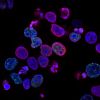 +25 +1
+25 +1A chemotherapy missile made of DNA target-locks on to cancer cells
DNA is the repository for genetic information. We’ve been tinkering with it since the 1970s, trying to alter the characteristics of organisms in a single generation, like boosting crop resistance to insect pests or even making pigs glow. Only recently have researchers popularized DNA as something else: a construction material. Earlier this year, researchers assembled an intelligent and autonomous nanostructure entirely out of DNA that delivered and released a cancer drug.
-
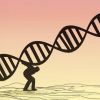 +26 +1
+26 +1Unhealthy aging could be thwarted in the future by new molecular discovery
Everybody wants to live as long as possible. We try our best to take care of ourselves — we watch our diet, we stay active, and we throw away the cigarettes. Owing to our gallant efforts, and thanks to advances in science and medicine, human life expectancy across the world doubled in the 20th century. The average human can now expect to live past 70 years old.
-
 +3 +1
+3 +1DNA evidence frees man who spent 14 years in jail for murder he did not commit
Ricky Davis's 2005 murder conviction is thrown out by a California court, becoming only the second case in the United States where investigative genetic genealogy has led to the freeing of a wrongly imprisoned person.
Submit a link
Start a discussion




















